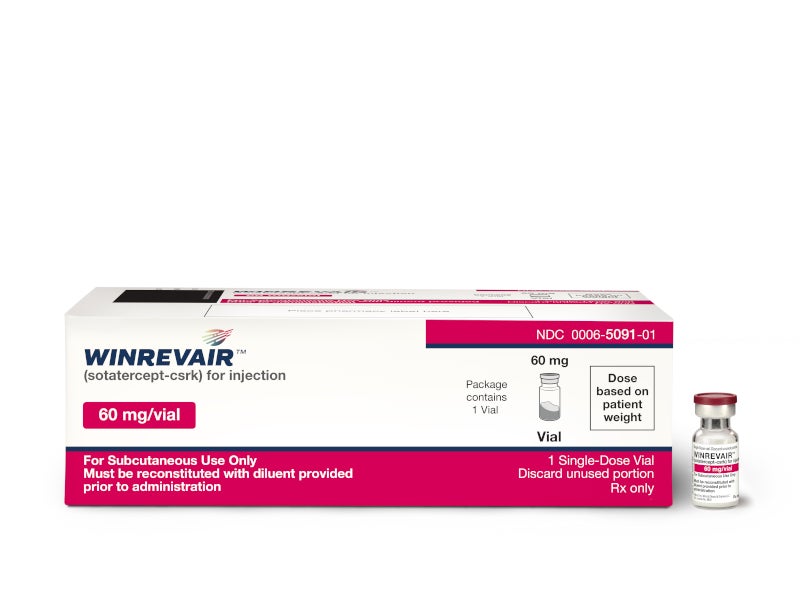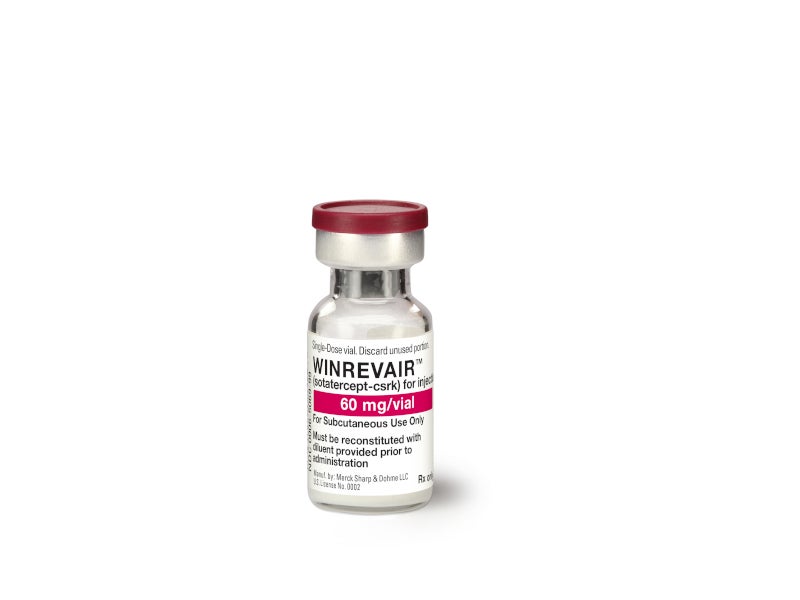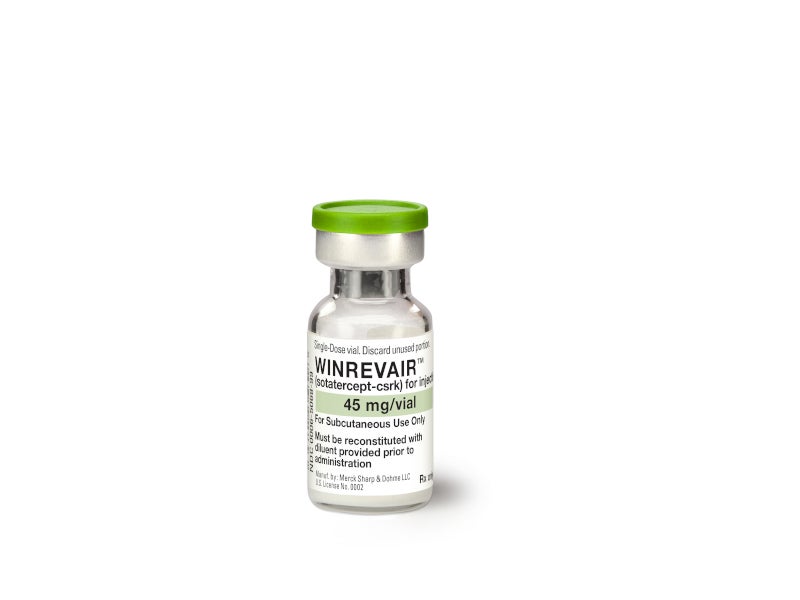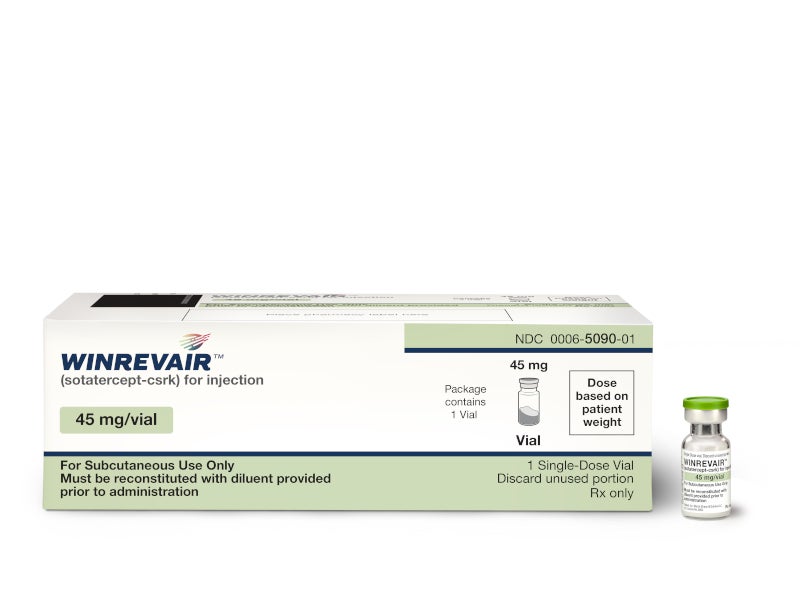Winrevair (sotatercept) is the first-in-class therapy for the treatment of adults with pulmonary arterial hypertension (PAH), specifically Group 1, as defined by the World Health Organization (WHO).
The drug intends to improve exercise capacity and WHO functional class, as well as decrease the risk of clinical worsening events.
Acceleron Pharma originally developed the drug as its primary therapeutic candidate. Sotatercept subsequently transitioned into the portfolio of Merck, a pharmaceutical company based in Germany, following Merck’s acquisition of Acceleron in November 2021. Sotatercept has been subject to a licensing agreement with Bristol Myers Squibb (BMS).
The drug is available in 45mg and 60mg dosage strengths and is supplied as a lyophilised cake or powder in single-dose vials for subcutaneous administration after reconstitution.
Regulatory approvals for Winrevair
Merck’s biologics license application (BLA) for sotatercept was accepted by the US Food and Drug Administration (FDA) for priority review in September 2023. The drug received the FDA approval in March 2024.
It received breakthrough therapy and orphan drug designations from the FDA, as well as priority medicines designation and orphan drug designation from the European Medicines Agency (EMA) to treat PAH.
Pulmonary arterial hypertension causes and symptoms
PAH is a rare and progressive disorder marked by the constriction of small pulmonary arteries, which results in high blood pressure within the pulmonary circulation.
The disease is caused by the hyperproliferation of cells within the arterial walls of the lungs, which leads to narrowing and abnormal constriction. The condition can rapidly progress, causing significant strain to the heart and reducing life expectancy.
Its symptoms include shortness of breath, blue or grey skin colour, chest pain, dizziness, fast pulse, fatigue, and swelling in the ankles, legs, and abdomen. An estimated 40,000 individuals are affected by PAH in the US.
Winrevair’s mechanism of action
Winrevair is an activin signalling inhibitor that binds to activin A and other transforming growth factor (TGF)-β superfamily ligands, resulting in the modulation of vascular proliferation by improving the balance between pro-proliferative and anti-proliferative signalling pathways. TGF-β is essential in cell proliferation, differentiation, and apoptosis.
In rat models of PAH, a sotatercept analogue was shown to reduce inflammation and inhibit the proliferation of endothelial and smooth muscle cells, leading to thinner vessel walls, partial reversal of right ventricular remodelling, and enhanced haemodynamics.
Clinical studies on Winrevair
The FDA’s approval of Winrevair was based on the results of the STELLAR Phase III clinical trial, a global, double-blind, placebo-controlled, multi-centre and parallel-group study enrolling 323 patients with PAH classified as WHO Group 1 Functional Class (FC) II or III.
The patients were randomised in a 1:1 ratio to receive either Winrevair at a target dose of 0.7mg/kg or placebo alongside their standard care, which was administered subcutaneously every three weeks.
The primary endpoint was the change from baseline in the six-minute walk distance (6MWD) at week 24. Winrevair demonstrated a placebo-adjusted median increase in 6MWD of 41m, significantly reducing the risk of death or PAH clinical worsening events by 84% compared to placebo.
The addition of Winrevair to standard care was associated with considerable improvements across several secondary outcomes. Notably, 29% of patients in the Winrevair cohort experienced an enhancement in their FC from baseline after 24 weeks, compared to just 14% of patients in the placebo group.
Significant improvements were also observed in pulmonary vascular resistance (PVR) and N-terminal pro-B-type natriuretic peptide (NT-proBNP) levels.
The most frequently reported side effects were headache, epistaxis, rashes, telangiectasia, diarrhoea, dizziness, and erythema.






